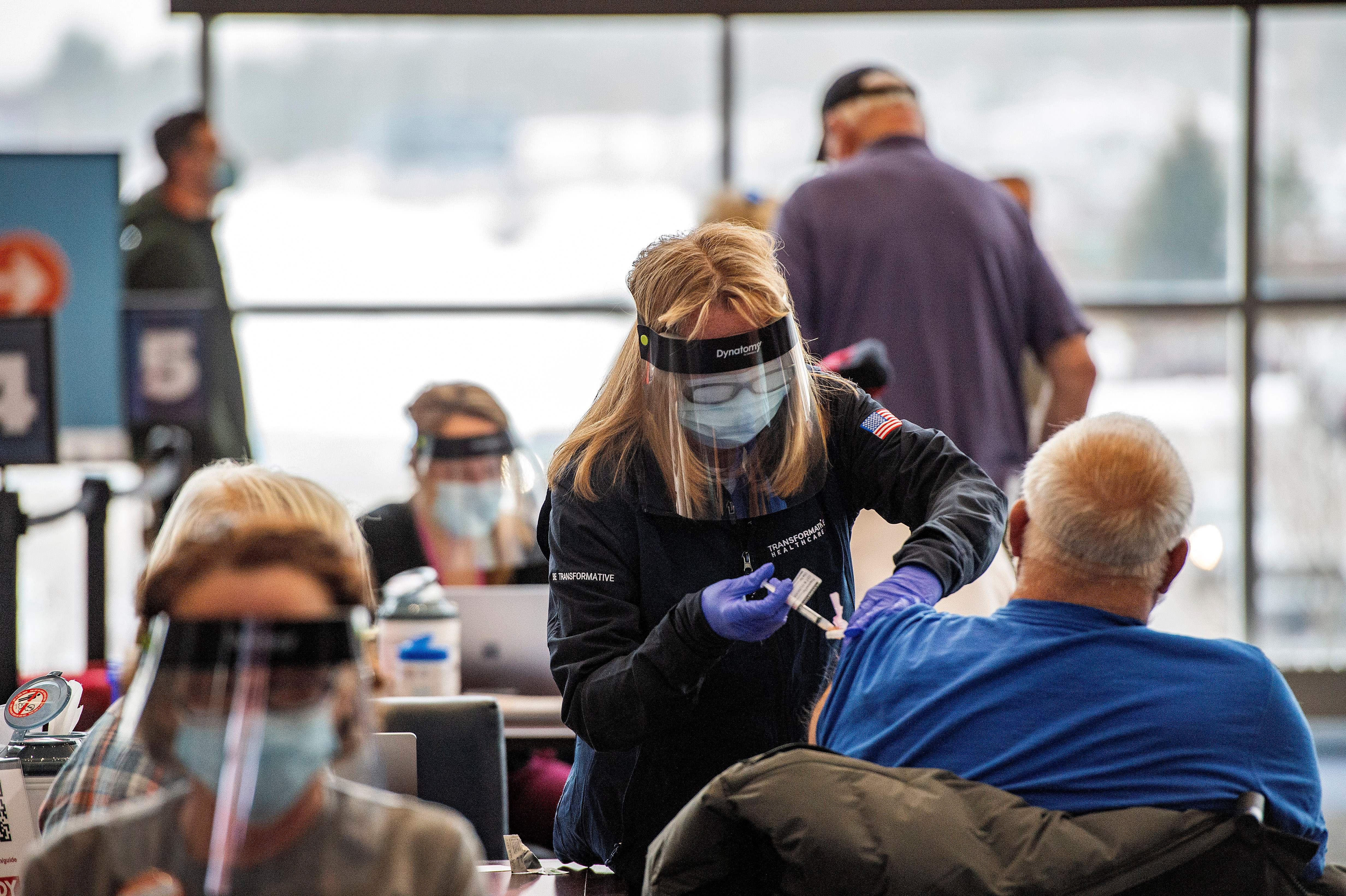Covid cases are falling, but unequal vaccine access threatens global recovery, WHO says

Global Covid-19 cases are on the decline, but the uneven distribution of life-saving vaccines could prolong the global economic recovery and leave developing countries even further behind, the World Health Organization said Wednesday.
There were 3.7 million new global coronavirus cases reported during the week ending Jan. 31, a 13% decrease compared with the prior week, according to the WHO’s latest situation report. Covid-19 deaths, which lag new cases by a few weeks, posted a modest 1% decline over the week.
That’s welcome news considering global cases were expected to breach 5.5 million cases a week, but more than 3 million new infections is “still an awful lot of people,” said Dr. Mike Ryan, executive director of the WHO’s health emergencies program.
“The rain has eased but the sun’s not out yet,” Ryan said during a live Q&A session at the agency’s Geneva headquarters.
Health experts have warned that new, highly infectious variants of the virus first identified in the United Kingdom, South Africa and Brazil could add fuel to already raging outbreaks in countries around the world.
A faster transmitting virus could lead to more infections, would would ultimately cause more hospitalizations and deaths if it spreads unchecked. But even in areas where the variants have emerged, cases are on the decline, said Maria Van Kerkhove, head of the WHO’s emerging diseases and zoonosis unit.
In the U.K., which identified the B.1.1.7 variant in December, cases have declined 31% compared with the prior week, according to the WHO report. Likewise, in South Africa, which also discovered a similar variant called B.1.351 late last year, cases declined by 44%, the report said.
“This is important because people are scared when they hear mutations and mutants and variants,” Kerkhove said. “We cannot let our guard down. We cannot let up.”
The emergence of new coronavirus variants haven’t come as a surprise to scientists since it’s normal for viruses to mutate as they spread. Experts are worried that some of the strains, specifically the B.1.351 variant found in South Africa, might pose a risk to the effectiveness of currently available vaccines and therapeutics.
Drugmakers have maintained that their shots should still work against the new variants, but health experts have stressed that it’s important to tamp down the spread of the virus to prevent more mutations while countries deploy the initial supplies of Covid-19 vaccines.
However, not all countries have been given equal access to the life-saving drugs.
Of the countries that have started rolling out doses to their residents, most of them have been in higher-income nations that claimed the early supply of vials through their own supply agreements, WHO Director-General Tedros Adhanom Ghebreyesus has warned.
That’s a problem because the vaccines will eventually allow countries to reopen their economies without risking an increase in hospitalizations and deaths from the virus, Ryan said on Wednesday. The WHO has advocated for countries to sign up for COVAX, a global alliance it co-heads that aims to deliver coronavirus vaccines to the world’s poorest countries.
The program hopes to deliver 2.3 billion doses by the end of this year. Earlier on Wednesday, officials from COVAX announced that it has allocated at least 330 million doses so far for poorer countries, which it hopes to begin delivering by late February or early March. Those early doses would go toward vaccinating people most at risk, like health-care workers.
Ryan said this would allow countries to reopen their economies without having to worry about adding more strain to their hospital systems, but that won’t be possible until “we can deliver the minimum number of doses of vaccine to all countries.”
“If we want our societies open, if we want to be on the journey to normalization and normalizing the way we live, then we’ve got to be fair about the way we distribute the means to live normally,” Ryan said. “Right now, the unequal distribution of vaccines means that not all societies are going to get an equal chance to come back online and that’s simply not fair.”
— CNBC’s Holly Ellyatt and Reuters contributed to this report.




